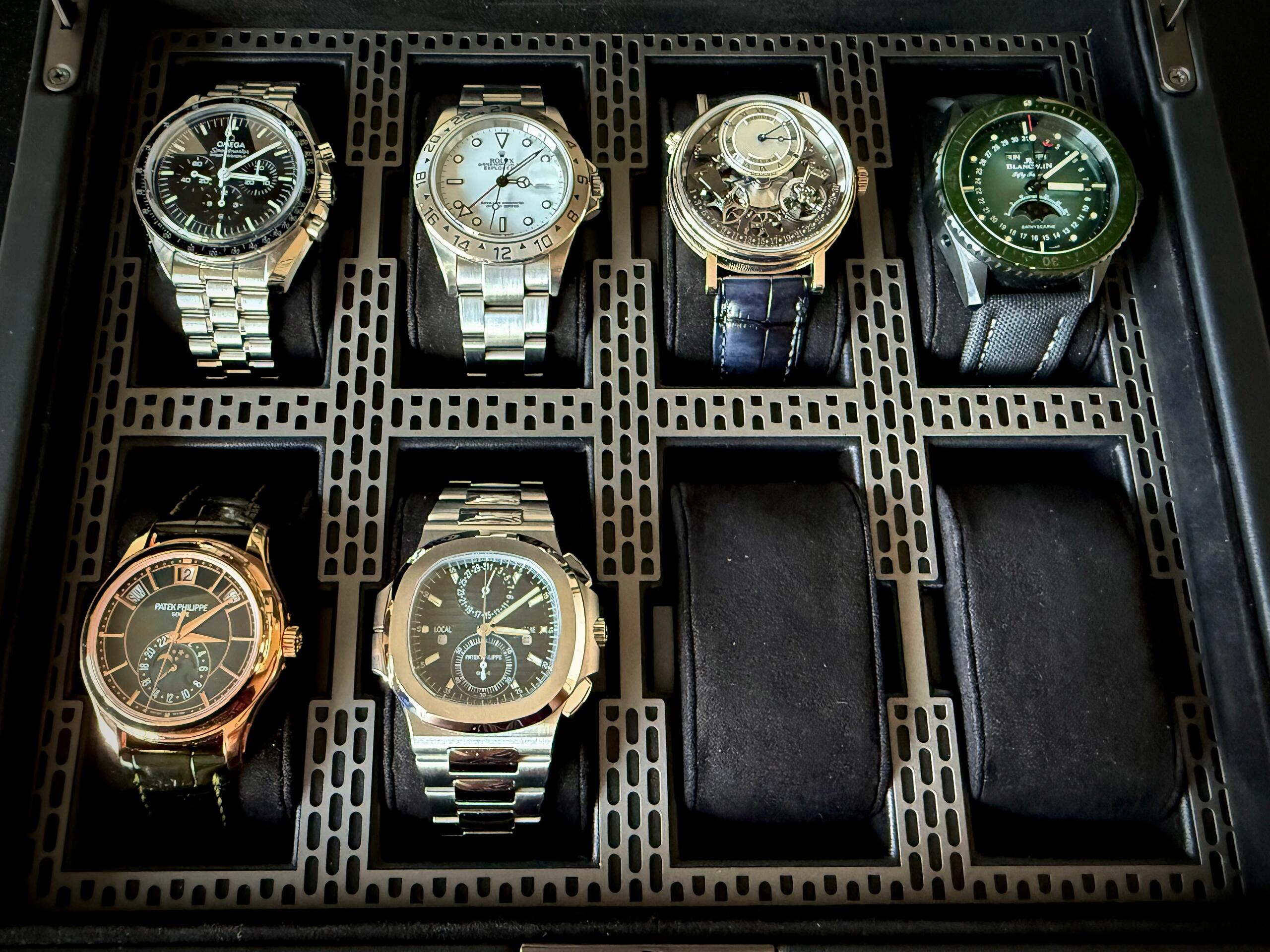5 Essential Questions to Ask Before Buying Your First Luxury Watch
Entering the world of fine watchmaking is an exciting milestone. A luxury watch is a testament to craftsmanship, a personal statement, and often, a lifelong companion. However, the sheer variety of options can be overwhelming for a first-time buyer.
This guide isn't about telling you which watch to buy. Instead, it's about empowering you with the right questions to ask yourself. By clarifying your needs and preferences, you'll be able to make a confident and satisfying choice that you'll appreciate for years to come.
 1. What Is Your Realistic Budget?
1. What Is Your Realistic Budget?
This is the most crucial starting point. The term "luxury" spans a wide spectrum, from accessible premium brands to high-horology masterpieces.
-
Set a Range: Establish a clear and comfortable budget range before you start looking. This immediately narrows the field and prevents "sticker shock."
-
Remember the Total Cost: Factor in more than just the sticker price. Consider potential taxes, insurance costs, and future servicing. A mechanical watch requires periodic maintenance to ensure its longevity and performance.
-
Value Over Price: Focus on the value you're getting within your budget. Which watch offers the best craftsmanship, materials, and heritage for your money? A well-chosen timepiece at a lower price point can often bring more joy than a stretched purchase.
Expert Tip: The sweet spot for a first luxury watch often lies between $2,000 and $7,000. This range offers exceptional quality, reliable automatic movements, and entry into renowned brands.
2. Which Style Truly Reflects You?
Your watch should be an extension of your personality and wardrobe. Its style dictates when and how you'll wear it.
-
Dress Watches: Characterized by a thin profile, simple dial (often white or black), and a leather strap. They are elegant and slide easily under a shirt cuff, perfect for formal or office settings.
-
Sports Watches: Designed to be robust and versatile. This category includes dive watches (with high water resistance), chronographs (with stopwatch功能), and pilot's watches. They are incredibly popular as first luxury pieces due to their durability and everyday usability.
-
Everyday Casual: Often a blend of the two—rugged enough for daily wear but refined enough for smart-casual occasions. Think of a watch with a clean dial on a stainless steel bracelet.
Expert Tip: Look at your wardrobe. If you're mostly in business attire, a dress watch makes sense. If your life is more casual or active, a sports model is likely a more practical and frequent companion.
3. Mechanical or Quartz? Understanding the Movement
The "movement" is the engine of your watch. Your choice here defines the watch's soul and character.
-
Automatic (Self-Winding) Mechanical: The heart of traditional watchmaking. It runs on a complex series of springs and gears and is powered by the motion of your wrist. It's admired for its artistry, engineering, and heritage. It will require servicing every 5-7 years and may gain or lose a few seconds each day.
-
Quartz: Powered by a battery and regulated by a tiny quartz crystal. It is incredibly accurate, low-maintenance, and generally more affordable. However, it lacks the mechanical romance for many enthusiasts.
Expert Tip: For a first luxury watch, an automatic movement is often the preferred choice. It connects you to the centuries-old art of horology and provides a tangible sense of craftsmanship that is part of the luxury experience.
4. What Practical Features (Complications) Do You Need?
Beyond telling time, watches can have additional functions called "complications." While fascinating, it's best to start simple.
-
Date Window: The most common and useful complication. A simple date display is incredibly practical for daily life.
-
Chronograph: A stopwatch function. Useful for timing events, but often chosen for its sporty and dynamic aesthetic.
-
Water Resistance: Pay attention to this even if you're not a diver. A rating of 100 meters (10 ATM) means you can swim with it, while 50 meters (5 ATM) is fine for showering or swimming. Don't confuse it with "waterproof"—no watch is fully waterproof.
Expert Tip: As a newcomer, prioritize readability and simplicity. A time-only watch or one with a simple date function is a classic, elegant choice that will never go out of style. Avoid overcomplicating your first purchase.
5. Where and How Will You Wear It?
Envision the watch's role in your life. This will guide you toward the right style, size, and durability.
-
The Daily Driver: If this will be your one-watch collection for all occasions, a versatile 38-42mm sports watch on a steel bracelet is a perfect "go-anywhere, do-anything" choice.
-
For Special Occasions: If it's primarily for formal events or the office, a more understated dress watch on a leather strap is ideal.
-
Lifestyle: Do you have an active lifestyle? Then water resistance and a scratch-resistant sapphire crystal are must-haves.
Expert Tip: Consider the size. A watch that is too large looks ostentatious and can be uncomfortable; one that is too small can look out of place. Try different sizes on your wrist. The lugs (the parts that connect to the strap) should not overhang your wrist.
Your Journey Starts Here
Choosing your first luxury watch is a personal and rewarding journey. There are no wrong answers, only informed and uninformed choices. By thoughtfully considering these five questions—Budget, Style, Movement, Complications, and Lifestyle—you move from being a passive buyer to an informed enthusiast.
Remember, the best watch for you is not the one someone else tells you to buy. It's the one that resonates with you personally, fits your life seamlessly, and brings you a sense of pride every time you fasten it to your wrist.
Ready to explore the world of horology? Dive deeper into our journal for guides on watch care, brand spotlights, and the fascinating history behind iconic designs.
